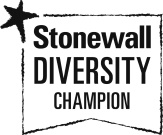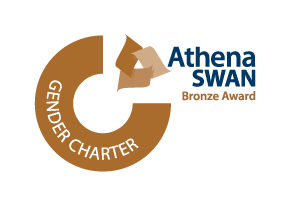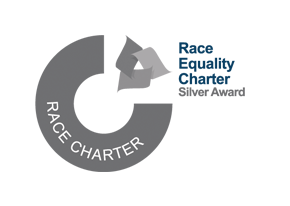Decolonising the Curriculum
Our approach to Decolonising the Curriculum (DTC) has been a joint effort from students and staff alike.
The University-led plan DTC plan was overseen by the then Race Equality Charter Self-Assessment Team Co-Chairs, Dr Lisa Lau and Professor Trevor McMillan, from 2021 to 2024. Prior to that a grass-roots consortium of staff and students, the Decolonise Keele Network, led initial work to Decolonise the Curriculum (DTC) at Keele and, in June 2018, launched a manifesto to respond to the question "What would it mean to decolonise the University curriculum?"
By the end of academic year 2021/2022, all Keele schools (16 at that time) had DTC networks, comprised of staff and students working to identify colonial hierarchies within curricula and bring about changes to improve inclusivity, in accordance with the Manifesto.
Opportunities for learning included Faculty-specific workshops enabling a focus on subject-specific topics but also generating discussion of concerns related to having open, honest and constructive DTC conversations. A Keele staff DTC guide (see links below) details some theory behind DTC and gives examples of changes made to curricula at Keele and elsewhere.
DTC is now embedded within our Inclusive Education Framework.
In addition to work of academic Schools, Keele Librarians have engaged with and support DTC.
Download the full Decolonising the Curriculum Staff Guide
Keele University DTC Staff Guide - PDF format (647 KB)
This file may not be suitable for some users of assistive technology. Request an accessible format.
Keele University DTC Staff guide - Word format (321 KB)
This file may not be suitable for some users of assistive technology. Request an accessible format.
Decolonising the Curriculum (DTC) was integrated within our 2019 student and staff Race Equality Charter action plans.
Keele's School's DTC Networks provided annual reports (2021 - 2024) to Keele's Race Equality Charter Self Assessment Team.
Actions have included:
- Contextualising the disciplines
- Theoretical and conceptual frameworks
- Structure and content (including notable curriculum changes)
- Case studies, examples, simulations
- Methods and approaches
- Delivery
- Modes of assessment
- Reading lists and references
Schools have shared their work internally, e.g. developing School-specific DTC toolkits, and have contributed to Faculty and University-wide workshops. Our DTC plans also extended beyond Keele. To date, Keele’s DTC team has placed itself on the world stage by giving lectures and presentations internationally and attendees from universities in Asia, Africa, Europe, North America, the Middle East, and even the World Bank, have joined us in Keele DTC workshops.
In order to raise awareness further, DTC is now embedded within our Inclusive Education Framework.
Keele University recognises that not only curricula but research too, must be decolonised. And Keele University’s Library is also beginning its journey towards considering how to decolonise, joining the excellent efforts which have already been initiated by the British Library, and other universities libraries like Cambridge, LSE, SOAS, and others.
We recognise that decolonising is an ongoing process that will take time and sustained effort to progress.
The Decolonise Keele Network (2018) defined decolonising the curriculum as a process of:
"identifying colonial systems, structures and relationships, and working to challenge those systems. It is not "integration" or simply the token inclusion of the intellectual achievements of non-white cultures. Rather, it involves a paradigm shift from a culture of exclusion and denial to the making of space for other political philosophies and knowledge systems. It's a culture shift to think more widely about why common knowledge is what it is, and in so doing adjusting cultural perceptions and power relations in real and significant ways."
DTC is about addressing the colonial legacies that persist within Western forms of knowledge. It's about reflecting on this knowledge, transforming ways of thinking, teaching, learning and researching. DTC goes beyond issues of race and takes into consideration gender, disability and sexual orientation when it comes to critically reflecting on knowledge.
It's about challenging biases, having uncomfortable but necessary conversations that make individuals and institutions inwardly reflect on:
- what they believe to be authoritative knowledge
- how this is conveyed to students
- its impacts
As an institution of teaching and learning we must understand our complicity in upholding colonial legacies, how this has shaped what and who we take as authoritative knowledge and how this has marginalised and alienated students and staff. The status quo in academia must be ruptured to ensure that we are a University that critically reflects and acknowledges the very problematic histories that have formed swathes of our knowledge bases.
DTC is imperative in cultivating a new generation of critical thinkers who have:
- unlearned that the Western 'classical' canon are the only and main form of authoritative knowledge,
- learned about a variety of topics from a range of authors
- been taught in ways that are inclusive and accessible
- are taught by a diverse range of academics
DTC benefits all students, not just our minority students, as they will all be learning from a critically reflective curriculum. University is about receiving a well-rounded education and we want students to have a broader perspective when studying and researching with us.
DTC also benefits staff by opening up possibilities to rethink and reframe curricula and challenge what "we know" by increasing diversity of thought and perspective.
DTC helps us enrich our curricula, improving interest and fit to our Keele Graduate Attributes (academic expertise, professional skills, personal effectiveness and social and ethnical responsibility).
Many Keele staff have been researching and publishing prolifically in DTC-related work, and actively promoting collaboration across universities, countries, and disciplines, here are a few links below to just some of these publications from 2020 onwards:
L. Lau and Ana Mendes (2024) “Decolonizing the Global North university: Host-guest dynamics and the limits of hospitality”, Journal of Arts and Humanities in Higher Education, 23 (3): 266-284.
Dwivedi, O.P. and L. Lau (2024) “Are Indian Universities Decolonising Their Curriculums? Investigating Reasons for the Slow(er) Development of Decolonising the Curriculum (DTC) in India” Journal of Asia Pacific Pop Culture (UPenn) 9 (1): 44-67.
Workman, S.C., Thompson, M.C. and Lau, L. (2023) Decolonising Medical Knowledge - the case of breast cancer and ethnicity in the UK. Journal of Cancer Policy. DOI: 10.1016/j.jcpo.2022.100365
Aneta Hayes, Sylvie Lomer & Sophia Hayat Taha (2022) Epistemological process towards decolonial praxis and epistemic inequality of an international student, Educational Review, DOI: 10.1080/00131911.2022.2115463
Mendes, A.C., and Lau, L . (2022) Wither the plurality of decolonising the curriculum? Safe spaces and identitarian politics in the arts and humanities classroom. Arts and Humanities in Higher Education, 21 (3). pp. 223-239.
Lukšaitė, E , Fricker, RA , McKinley, RK and Dikomitis, L (2022) Conceptualising and teaching biomedical uncertainty to medical students: an exploratory qualitative study. Medical Science Educator.
Rogers, S.L , Lau, L , Dowey, N, Sheikh, H and Williams, R (2022) Geology uprooted! Decolonising the curriculum for geologists. Geoscience Communication, 5 (3). 189 - 204.
Aneta Hayes, Kathy Luckett & Greg Misiaszek (2021) Possibilities and complexities of decolonising higher education: critical perspectives on praxis, Teaching in Higher Education, 26:7-8, 887-901, DOI: 10.1080/13562517.2021.1971384
Polidano, K, Parton, L, Agampodi, S, Agampodi, T, Haileselassie, B, Lalani, J, Mota, C, Price, HP , Rodrigues, S, Tafere, G, Trad, L, Zerihun, Z and Dikomitis, L (2022) Community engagement in cutaneous leishmaniasis research in
Brazil, Ethiopia, and Sri Lanka: a decolonial approach for global health. Frontiers in Public Health, 10.
Farzana Shain, Ümit Kemal Yıldız, Veronica Poku & Bulent Gokay (2021) From silence to ‘strategic advancement’: institutional responses to ‘decolonising’ in higher education in England, Teaching in Higher Education, 26:7-8, 920-936, DOI: 10.1080/13562517.2021.1976749
McKay, D. (2021) Towards framing the global in Global Development: prospects for development geography. Area. 54 (2): 185-194.
Green, J. (2020) Decolonising wound care teaching. British Journal of Community Nursing, 25 (9).
What would it mean to decolonise the University curriculum?
- Decolonising the curriculum means, first of all, acknowledging that knowledge is not owned by anyone. It is a cumulative and shared resource that is available to all. Knowledge (and culture) is collectively produced and human beings of all races, ethnicities, classes , genders, sexual orientations, and disabilities have as much right as elite white men to understand what our roles and contributions have been in shaping intellectual achievements and shifting culture and progress.
- Decolonising the curriculum is to recognise that knowledge is inevitably marked by power relations. Our universities exist in a global economy of knowledge, with a definite hegemonic centre, reflecting hierarchies of race, class and gender. At the top of this hierarchy sit the knowledge institutions of the global North, databanks and research centres supported by the wealth of European and North American powers. This hegemonic position is not just a matter of the wealth of the global North. Our world is still shaped by a long colonial history in which white upper class men are at the top of social hierarchy, most disciplines give disproportionate significance to the experiences, histories and achievements of this one group.
- Decolonising is about rethinking, reframing and reconstructing the current curriculum in order to make it better, and more inclusive. It is about expanding our notions of good literature so it doesn’t always elevate one voice, one experience, and one way of being in the world. It is about considering how different frameworks, traditions and knowledge projects can inform each other, how multiple voices can be heard, and how new perspectives emerge from mutual learning.
- Decolonising is not just about bringing in minority ethnic writers and texts, but also how we read ‘traditional mainstream’ texts. Decolonising is far more nuanced than just replacing authors, and it is more than just the topics covered in a course. It concerns not only what is taught and how it is critiqued, but how it is taught, which gives rise to an understanding of decolonisation that addresses how academic literacies are experienced.
- Decolonising means identifying ways in which the university structurally reproduces colonial hierarchies; confronting, challenging and rejecting the status quo; and reimagining them and putting alternatives into practice for the benefit of our academic integrity and our social viability.
- Decolonising the curriculum means creating spaces and resources for a dialogue among all members of the university on how to imagine and envision all cultures and knowledge systems in the curriculum, and with respect to what is being taught and how it frames the world.
- Decolonisation is not a project over which one group can claim sole custodianship. Non-white and white academics and students are in this together. This will involve conscious, deliberate, non-hypocritical and diligent interest by both non-white and white members of the university in all knowledge systems, cultures, peoples and languages.
- Decolonising requires sustained collaboration, discussion and experimentation among groups of teachers and students, who themselves have power to make things happen on the ground and think about what might be done differently. The change will take different forms in different universities and disciplines. There is no one-size-fits-all solution.
- Decolonising is thinking about how students experience the university differently. Race, gender, disability and class all demonstrably impact student attainment and experiences of exclusion from the university environment. These are linked to the university’s historic identity and mission, as well as wider structural inequalities within society.
- Decolonising requires the courage to admit that any knowledge could and should be open to challenge and question; regardless of its original power relations. This is the only way to avoid the mere ‘displacement’ of one curriculum coloniser by another.
- Decolonising is about how we can ensure a system where all those who engage with the university to make their living, or to study, can do so under conditions of dignity, respect and security.







